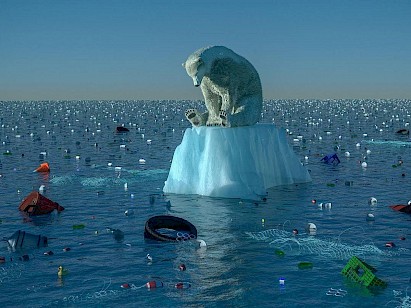Study Highlights Alarming Trends in Ocean Pollution
A recent study has brought to light alarming trends in ocean pollution, underscoring the urgent need for comprehensive action to address the escalating environmental crisis. The findings reveal significant increases in marine pollution levels, impacting marine life, human health, and global ecosystems.
Key Findings of the Study
- Rising Plastic Pollution: The study shows a dramatic rise in plastic pollution in the oceans. Researchers found that the amount of plastic waste entering the ocean each year has reached unprecedented levels, contributing to massive garbage patches in all major oceans.
- Chemical Contaminants: The presence of hazardous chemical pollutants, such as heavy metals, pesticides, and industrial chemicals, has increased significantly. These contaminants are spreading through the marine food web, posing risks to marine species and human health.
Impact on Marine Life
- Threat to Biodiversity: Ocean pollution is causing severe harm to marine biodiversity. The study highlights the detrimental effects on various marine species, including fish, seabirds, and marine mammals, many of which are ingesting or becoming entangled in plastic waste.
- Coral Reef Degradation: The study also emphasizes the impact of pollution on coral reefs, which are experiencing accelerated degradation. Chemical pollutants and microplastics are contributing to coral bleaching and the overall decline of these vital ecosystems.
Human Health Concerns
- Seafood Safety: The contamination of marine environments is raising concerns about the safety of seafood. Pollutants, especially microplastics and chemicals, are entering the food chain, potentially affecting human health through the consumption of contaminated seafood.
- Coastal Communities: Coastal communities that rely on fishing and tourism are particularly vulnerable. The decline in marine health is impacting their livelihoods and posing long-term economic and health risks.
Global Response and Initiatives
- Policy Measures: The study calls for stronger policy measures to combat ocean pollution. This includes stricter regulations on plastic production and waste management, as well as enhanced monitoring and enforcement of marine pollution laws.
- International Cooperation: The findings emphasize the need for international cooperation to tackle ocean pollution. Countries are urged to collaborate on initiatives to reduce pollution sources, share best practices, and invest in cleanup efforts.
Technological and Innovative Solutions
- Waste Management Improvements: Innovations in waste management, such as advanced recycling technologies and biodegradable materials, are critical to reducing the flow of plastic into the oceans. The study advocates for increased investment in these technologies.
- Cleanup Efforts: The research highlights successful ocean cleanup initiatives and the need for their expansion. Projects like The Ocean Cleanup are making strides in removing plastic from the ocean, but greater scale and support are needed.
Public Awareness and Action
- Educational Campaigns: Raising public awareness about the impacts of ocean pollution is crucial. The study suggests that educational campaigns can drive behavioral changes, encouraging reduced plastic use and increased recycling efforts.
- Community Involvement: Engaging local communities in coastal cleanup activities and pollution prevention programs is essential. Grassroots movements can significantly contribute to reducing marine pollution at the local level.
Long-Term Outlook
- Sustainable Practices: The study underscores the importance of adopting sustainable practices across industries and communities. Reducing plastic production, promoting circular economies, and protecting marine ecosystems are key strategies.
- Future Research: Ongoing research and monitoring are vital to understanding the full scope of ocean pollution and its impacts. The study calls for continued scientific efforts to inform policy and conservation strategies.
Conclusion
The alarming trends in ocean pollution highlighted by the recent study demonstrate the urgent need for coordinated global action. By implementing stronger policies, investing in innovative solutions, and raising public awareness, the international community can work towards safeguarding the health of our oceans and ensuring a sustainable future for all.






Post Comment